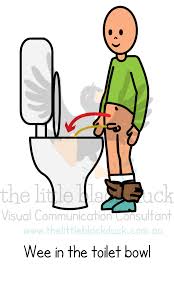wee
英 [wiː]
美 [wiː]
- adj. 极小的;很早的
- n. 一点点
使用频率:

中文词源
wee 很小的
来自weight的口语,来自短语a littel wei,即少量的,很小的。
英语词源
- wee
-
wee: English has two words wee. The older, ‘small’ [OE], was originally a noun, Old English wēg or wēge. This meant ‘weight’, and is closely related to English weigh. Its use in contexts such as a little wee, literally ‘a small weight’, meant that by the 13th century it had shifted semantically to ‘small amount’, but it did not become an adjective until the 15th century. Weeny was derived from it in the 18th century. Wee ‘urine, urinate’ [20] and its reduplication wee-wee [20] are nursery words, and no doubt originated in some sort of fanciful imitation of the sound of urinating.
=> weigh - wee (adj.)
- "extremely small," mid-15c., from earlier noun use in sense of "quantity, amount" (such as a littel wei "a little thing or amount," c. 1300), from Old English wæge "weight" (see weigh). Adjectival use wee bit apparently developed as parallel to such forms as a bit thing "a little thing." Wee hours is attested by 1891, from Scottish phrase wee sma' hours (1819). Wee folk "faeries" is recorded from 1819. Weeny "tiny, small" is from 1790.
权威例句
- 1. The baby has done a wee in his potty.
- 婴儿往便壶里撒了尿。
- 2. He just needs to calm down a wee bit.
- 他只是需要稍微冷静一下。
- 3. I put him on his pot, he did some wee.
- 我把他放到便壶上,他撒了点尿。
- 4. He said he wanted to wee.
- 他说他要撒尿。
- 5. I've got a wee kitten in the flat.
- 我在公寓里养了一只小猫。